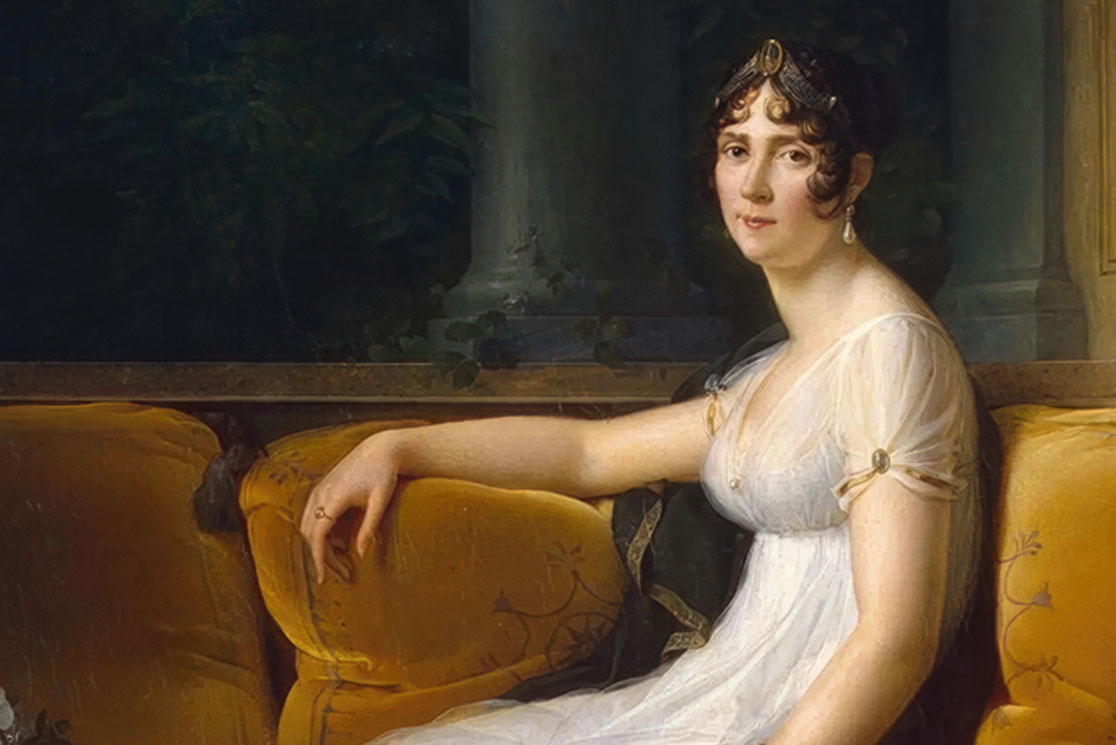
Joséphine Bonaparte: Fate, Misfortune, and Tragic Love Story
Joséphine Bonaparte, the first wife of Napoleon Bonaparte and the first Empress of France, lived a life filled with love, betrayal, political intrigue, and personal suffering. Her journey from a young Creole woman in Caribbean island to the most powerful woman in France was both dazzling and heartbreaking. She endured imprisonment, infidelity, illness, and the ultimate sorrow of separation from the man who had once adored her. Her fate, shaped by fortune and misfortune alike, remains one of the most compelling stories in European history.
Early Life and First Tragedy
Born Marie Josèphe Rose Tascher de La Pagerie on June 23, 1763, on the island of Martinique, she grew up in a privileged but unstable colonial setting. As a child, a fortune teller reportedly told her that she would become “more than a queen,” a prophecy that would later seem eerily accurate.
At sixteen, she was sent to France to marry Alexandre de Beauharnais, an aristocrat who was initially indifferent to her. Their marriage was troubled from the start. Alexandre found her unsophisticated and distanced himself from her. Though they had two children, Eugène and Hortense, his neglect and infidelities led to their separation. When the French Revolution erupted, Alexandre, a general in the Revolutionary Army, was arrested and guillotined during the Reign of Terror. Joséphine herself was imprisoned and barely escaped execution, her survival hinging on the fall of Robespierre.
Love and Infidelity in the Arms of Napoleon
Joséphine’s resilience allowed her to navigate post-revolutionary Paris with grace and wit. She became a courtesan of sorts, mingling with influential men, including Paul Barras, the powerful Director of France. It was through these social circles that she met Napoleon Bonaparte, an ambitious young general.
Despite being six years older than Napoleon, Joséphine captivated him with her charm and elegance. He fell deeply in love, writing passionate letters filled with adoration. They married in 1796, but their union was fraught with challenges from the start. When Napoleon left for his Italian campaign, Joséphine engaged in an affair with a young officer, Hippolyte Charles. Napoleon, though devastated when he learned of her betrayal, was too infatuated to leave her.
Over time, their relationship became a web of infidelity. Napoleon, wounded by Joséphine’s betrayal, began seeking solace in other women. Both engaged in extramarital affairs, but Napoleon’s conquests, both military and romantic—soon overshadowed hers. Joséphine, however, remained steadfast in her devotion, aware that her husband’s rise to power depended on stability within their marriage.
Power and Pain
When Napoleon crowned himself Emperor in 1804, he also crowned Joséphine as Empress, a public display of his love and her status. However, behind the grand ceremonies, her greatest sorrow loomed, her inability to provide an heir.
Despite her efforts, Joséphine had no children with Napoleon. Her past pregnancies had left her body weakened, and doctors believed she was infertile. Napoleon, whose ambition extended to founding a dynasty, faced immense pressure to divorce her. Though he still loved her, he understood that France needed an heir.
Divorce and Final Years
In December 1809, Napoleon, with a heavy heart, informed Joséphine that he must annul their marriage. The emotional scene that followed was one of deep anguish. Joséphine reportedly collapsed in tears, unable to bear the thought of losing him. On January 10, 1810, their union was officially annulled.
Joséphine, though heartbroken, maintained her dignity. Napoleon ensured that she retained her title and provided her with Malmaison, a beautiful estate where she spent the rest of her days tending to her gardens and entertaining visitors.
Despite their separation, Napoleon never stopped loving her. He frequently wrote to her and spoke of her fondly, even after marrying Marie-Louise of Austria, who bore him a son. Joséphine, though resigned to her fate, reportedly wept whenever she heard news of him.
Illness and Death
Joséphine’s health deteriorated in the years following her divorce. She suffered from various ailments, possibly linked to stress and heartbreak. In May 1814, after walking in the cold to entertain Tsar Alexander I, she caught a severe chill that worsened into pneumonia.
On May 29, 1814, at the age of 50, Joséphine died at Malmaison, surrounded by her children. Her last words were said to be, “Bonaparte… Elba… the island…” an indication that, even in her final moments, she was thinking of Napoleon, who had been exiled to Elba just weeks before.
Eternal Love
Napoleon, upon hearing of Empress death, was inconsolable. He reportedly locked himself in his room and wept. During his final days in exile on Saint Helena, he confessed, “I truly loved my Joséphine, but I did not appreciate her enough.”
Joséphine’s legacy endures, not only in history but in her descendants. Her son Eugène’s lineage includes several European monarchs, while her daughter Hortense’s son, Louis-Napoleon, would later become Napoleon III, Emperor of France.
Her story remains one of the most poignant tales of love, loss, and fate. Joséphine Bonaparte, the woman who once ruled the heart of an emperor, ultimately succumbed to the tragedy of their impossible love. image/PD





